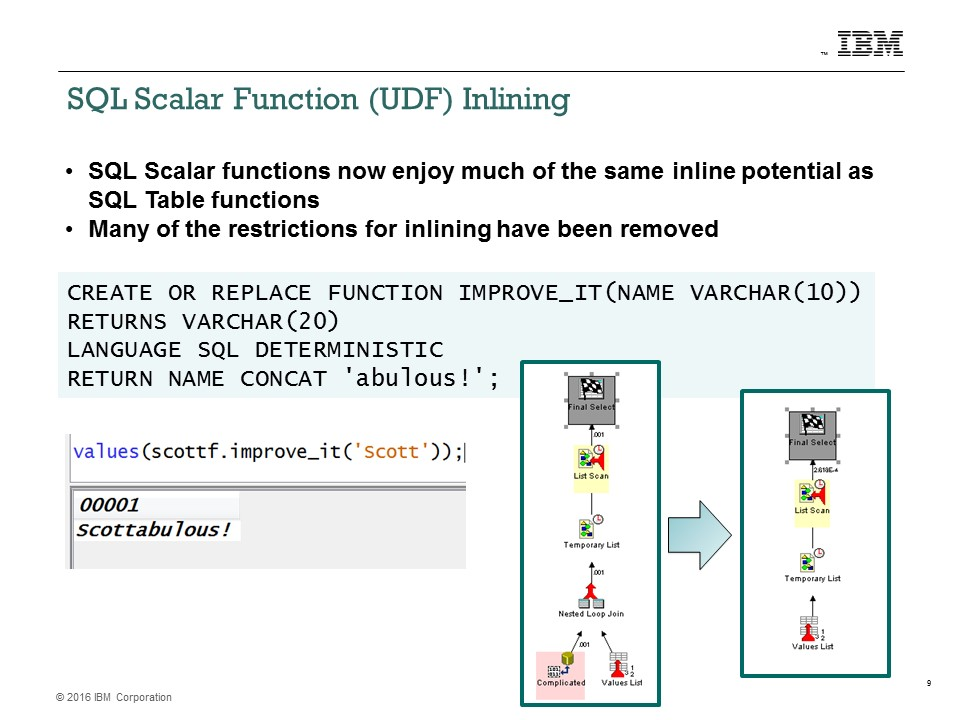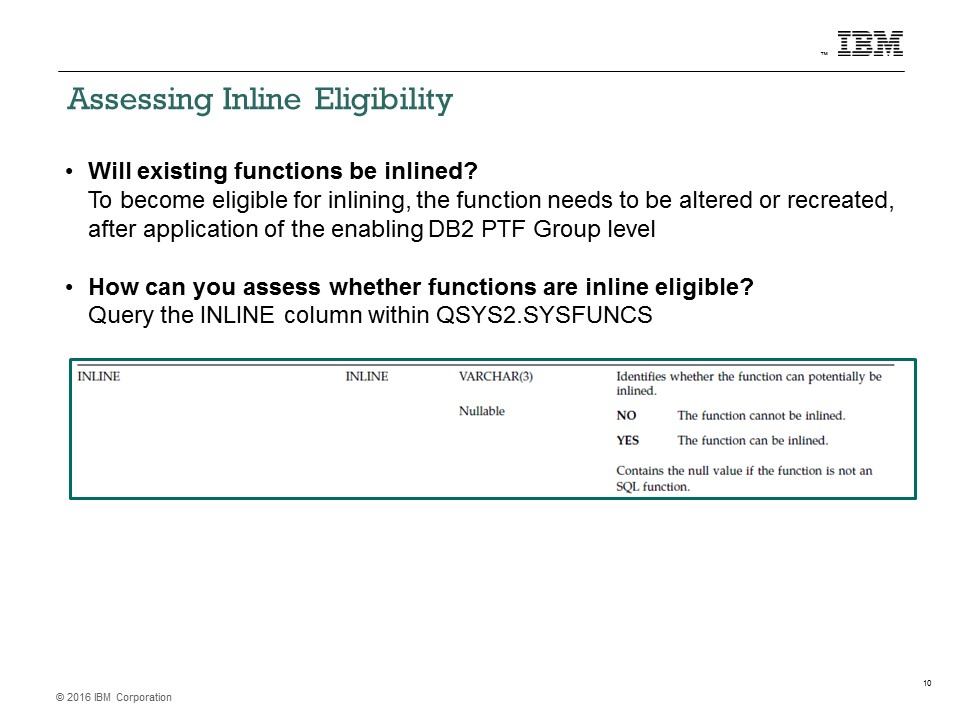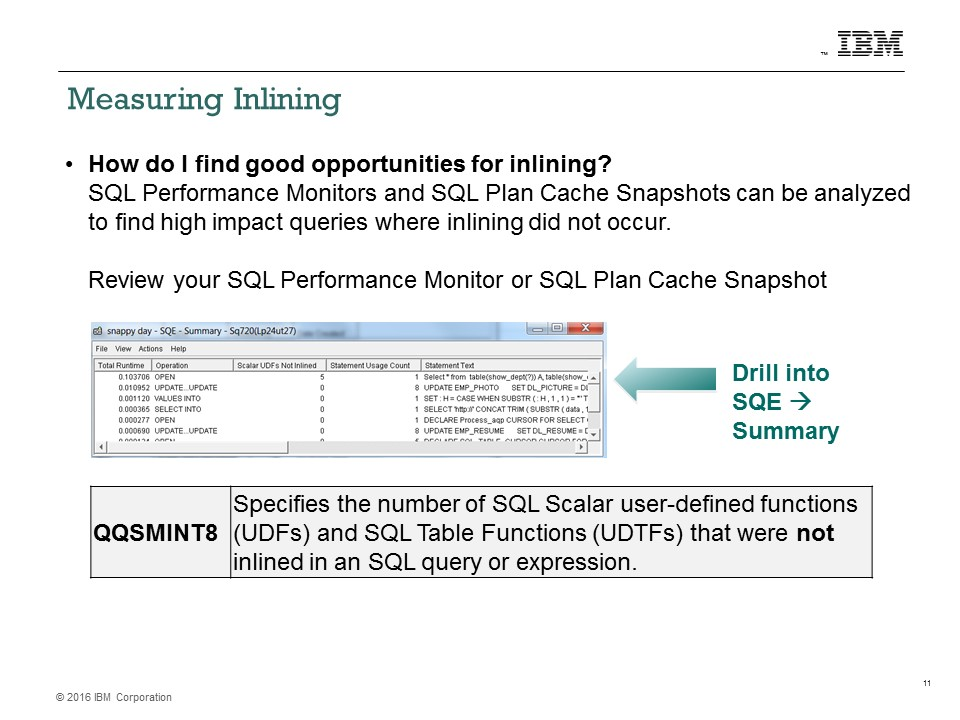News
Abstract
Improved Inlining support for SQL Scalar User Defined Functions (UDFs)
Content
You are in: IBM i Technology Updates > Db2 for i - Technology Updates > Db2 for i Performance Enhancements > Improved Inlining support for SQL Scalar User Defined Functions (UDFs)
Inline functions: When an SQL scalar function is inlined, instead of invoking the function as part of a query, the expression in the RETURN statement of the function may be copied (inlined) into the query itself. Such a function is called an inline function. A scalar function is an inline function if:
- The SQL function is global deterministic.
- The SQL-routine-body contains only a RETURN statement.
- No input parameter is an array type.
- The data type of the result is not XML or an array type.
- All objects referenced in the function exist when the function is created.
- The SQL-routine-body does not contain a common table expression that references an input parameter.
- The SQL-routine-body does not contain a nested table expression without a preceding LATERAL keyword that references an input parameter.
An inline function is only copied (inlined) into a query if:
- The query is eligible for the SQL Query Engine (SQE).
- The function references an object and the authority attributes of the function and the query are compatible based on one of the following conditions:
- The function is defined to run under the user's authority (*USER).
- The query is running under the owner's authority (*OWNER) and the owner of the query is the same as the owner of the function.
- The query is running under the user's authority (*USER), and the user or the user's group profile is the same as the owner of the function.
When a function is inlined, some of the options specified when the function was created are ignored:
- PARALLEL or NOT PARALLEL
- MODIFIES SQL DATA
- Commitment control level
- CONCURRENT ACCESS RESOLUTION
- ALWCPYDTA
- ATOMIC or NOT ATOMIC
If a function is inlined and it contains a reference to a special register, the value of the special register will be the same as other references to the same special register in the query.



[{"Business Unit":{"code":"BU058","label":"IBM Infrastructure w\/TPS"},"Product":{"code":"SWG60","label":"IBM i"},"Component":"","Platform":[{"code":"PF012","label":"IBM i"}],"Version":"All Versions","Edition":"","Line of Business":{"code":"LOB57","label":"Power"}}]
Was this topic helpful?
Document Information
Modified date:
21 January 2020
UID
ibm11168180